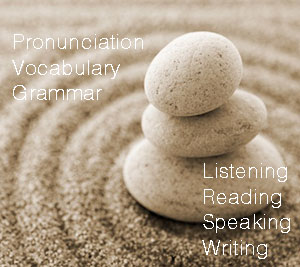My students have different emotions about writing in English. Some of them dislike it categorically, some of them really enjoy it and some of them fear it. In the course of study, as they have some small and medium-length writing tasks, their attitude slowly gravitates towards pleasure rather than distaste.
It is true that different students have different needs. IELTS students have no other choice but to write heaps of essays, letters or reports within strict format, whilst some business English students often ask me to have speaking/reading/listening practice only, without writing at all.
For me, as a teacher, the latter present a certain dilemma. On the one hand, I can’t make students do writing tasks if they sincerely believe that a) they don’t have time for this b) it’s boring and c) it’s not something they bargained for. On the other hand, I realise that any English learner needs to develop all the four skills evenly to achieve the next level.
My first step is to build trust and convince my students that each of them will benefit from writing.
Writing has three important advantages:
1) Writing keeps your brain active
By formulating your thoughts, you organise your ideas and do intellectual work. Brain is like a muscle – the more you train it, the better it functions in everyday life.
2) Writing activates your English
If you start writing regularly, you’ll be amazed how many words and collocations from your passive vocabulary migrate to your active vocabulary.
3) Writing is fun
If you choose a task well, if it inspires you and if you have some free time and space, you’ll be surprised how much pleasure you can get. Just let your imagination run wild and enjoy the writing process.
Here are some creative writing tasks that you can do with pleasure:
A letter to yourself 2o years ago
Imagine that there is a time machine that can send your letter to yourself when you were 20 years younger (teenagers can use 10 years here). Write some advice, encouragement or insights that you can share with your younger self.
A film review
Remember a film that produced a lasting impression on you. Write a review about the film’s plot, setting, acting and your emotions. Publish it as a comment at the film’s page at Imdb.
A recipe
Share one of your favourite recipes with others. After you write it, you can also publish it at some cooking forum or community.
A psychological questionnaire
Imagine that you need to set up a survey about an interesting psychological phenomenon. Topics can range from everyday issues to self-fulfillment. Some examples can be: work satisfaction, personal happiness, positive outlook, relationships, choice of profession and so on. Create 10 to 25 questions. You can use multiple choice questions or open questions, as you like.
A biography
Write a biography of an interesting person from your country. If nobody springs to your mind, choose an interesting relative, friend or acquaintance.
An adventure story
Create a story about a group of people lost deep in the jungle or in the desert. It can include some realistic elements, but you’d better let your imagination lead you.
Expert’s advice
Imagine that you work for a newspaper as an expert who gives advice about some difficulties that people experience. Your advice will then be published in the “letter and answer column”. Remember some relative or friend who is going through a rough patch and write both, their letter to the newspaper and expert’s answer.
A day in the life
Find a picture with an unusual person. Try to imagine what kind of life he or she has and write the description of one day in their life. The more exotic photo you choose, the better for your imagination and writing skills.
A childhood memory
Describe a memorable childhood event. Try to remember as many details as possible, then organise them in a captivating story.
Your travel advice
Remember an interesting sight, tour or place to visit in another country. Write your review about it, then try to find this place of interest at Tripadvisor and publish your review there.
These are just some of the exciting writing opportunities. I strongly believe that any person can develop as a writer and will benefit greatly from it, both, intellectually and creatively.
(Some ideas were inspired by the book How to Teach Writing by Jeremy Harmer).
 Русский
Русский English
English




